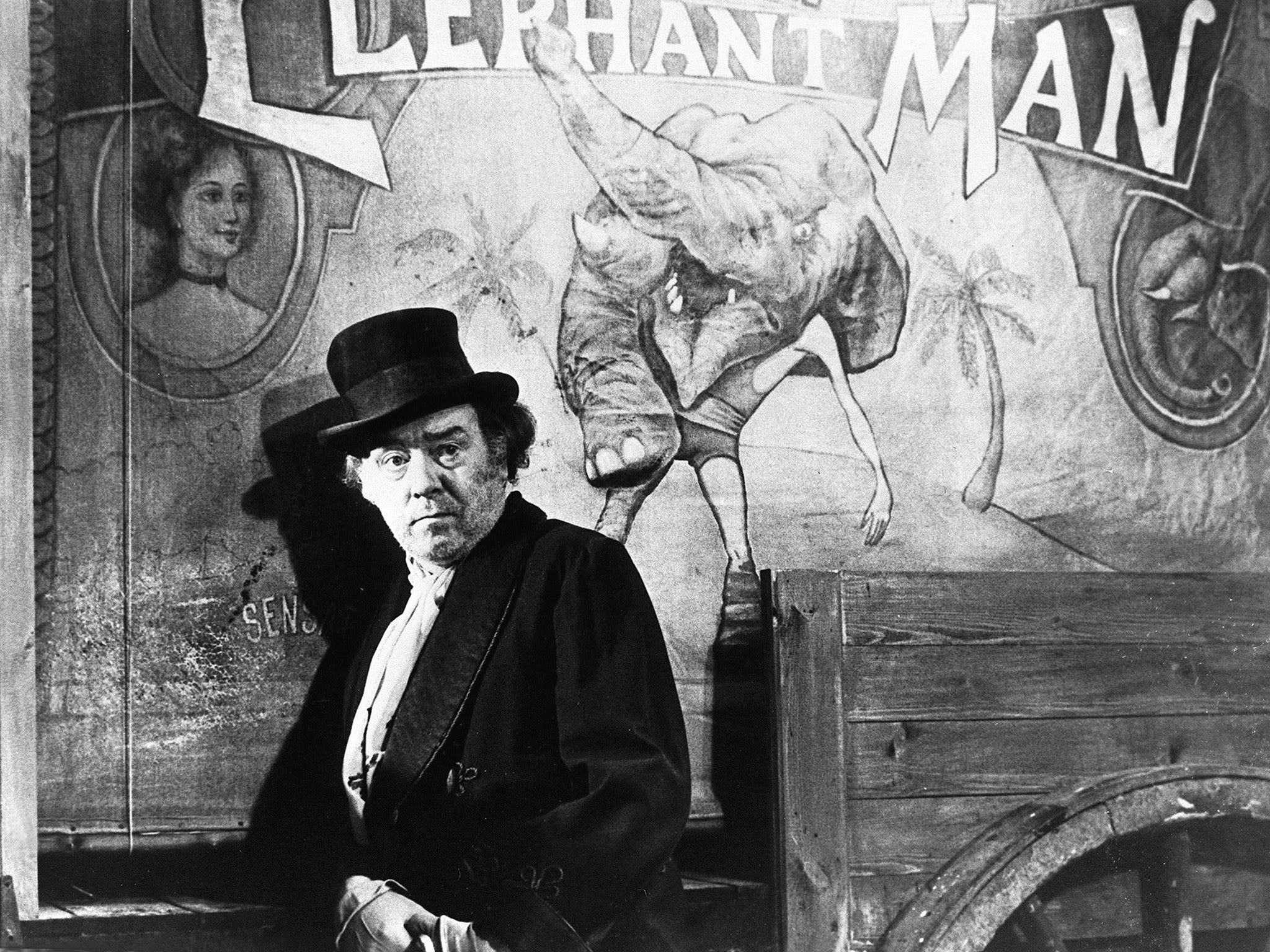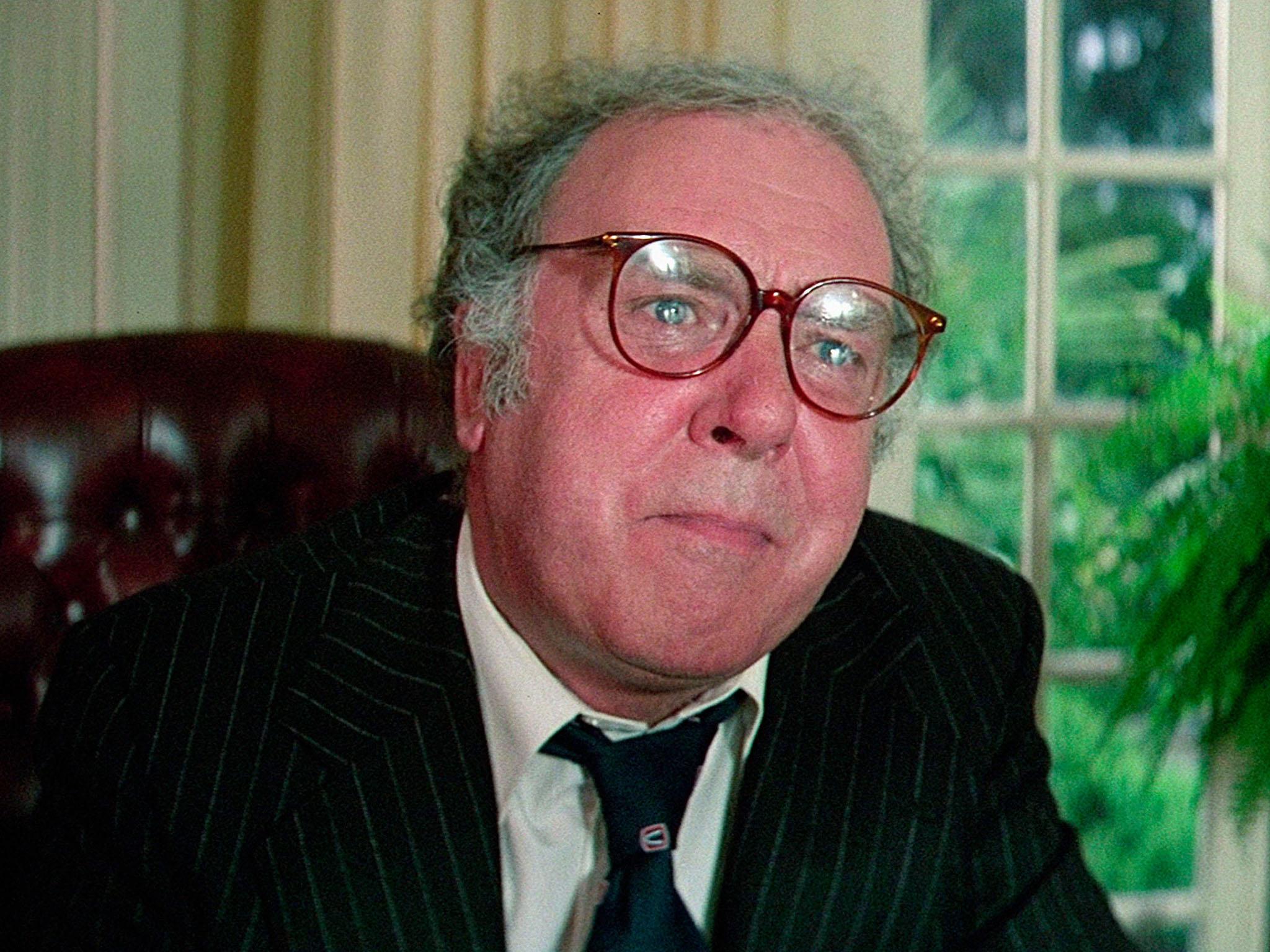Freddie Jones: Versatile actor who shone in comic and tragic roles
A familiar face in films and a stage veteran, Jones was a reliable turn in any production

Freddie Jones was a versatile, gifted actor whose talents shone in theatre, film and television but who never enjoyed the acclaim and household name status that several of his contemporaries did. Yet he expressed no angst over this: instead he worked almost right up to the end.
Jones, who has died aged 91, was a favourite of maverick directors such as Peter Brook and David Lynch, his ability to illuminate a supporting role and add bite to scenes making him highly prized.
He was born into a working-class family in Dresden, a suburb of Longton, Stoke-on-Trent. His father Charles was a porcelain thrower and Jones would spend a decade working for the British Ceramic Research Association in Penkhull. His girlfriend of the time suggested he join a drama course and Jones was soon performing in repertory theatre in Shelton.
Winning a scholarship to the Rose Bruford Training College of Speech and Drama, Jones erased his Staffordshire accent but honed his talents and in 1962 made his debut with the Royal Shakespeare Company (RSC). In 1964 he played Stanley in the Harold Pinter-directed revival of The Birthday Party. That year he took on the role of Cucurucu in Peter Brook’s Marat/Sade. Here he held his own alongside Glenda Jackson and Patrick Magee, so much so that he reprised the role on Broadway and in Brook’s 1967 film.
The year 1968 was when Jones made an international impact when he starred as Claudius in the six-part TV series The Caesars. This won Jones the award for World’s Best Television Actor of the Year at the 1969 Monte-Carlo Television Festival and increased his film work. He then starred alongside Peter Cushing in Terence Fisher’s Frankenstein Must Be Destroyed (1969), and subsequently became a regular in Hammer horror films, always bringing a mix of theatrical intensity and wry humour to the roles.
Having started acting later than most, Jones had a hunger to work and his filmography is littered with minor roles in minor films, all of which he considered grist to the mill.

When the US director David Lynch cast Jones as Bytes, the vicious owner of a freak show, in his 1980 film The Elephant Man, the actor proved to be a revelation. That same year he appeared as Sir in the first production of Ronald Harwood’s play The Dresser, first appearing in Manchester, then transferring to the London stage. Jones’s performance as the ageing, deluded thespian is widely considered the definitive incarnation of the role. Aged 53, Jones suddenly found himself gaining greater critical praise than at any time previously, yet he was not cast in the 1983 film version. A 1994 BBC Radio 4 production did, however, give Jones the opportunity to reprise what was surely his most acclaimed role.
Lynch cast Jones in 1984’s Dune, 1990’s Wild at Heart and in the director’s three-part US television series On the Air (1992). Jones claimed his favourite film role was that that of Orlando in Federico Fellini’s 1983 feature And the Ship Sails On. The film was poorly received but Jones said he enjoyed working with the Italian auteur.
After the acclaim that accompanied The Dresser, Jones rarely worked in theatre. Instead, he appeared extensively on television across the decades in everything from Z-Cars and The Avengers to Jason King, The Goodies, Cold Comfort Farm (in the 1968 miniseries and 1995 TV film version), Inspector Morse, Midsomer Murders, The Bill, The Secret Diary of Adrian Mole and dozens of other series, miniseries, TV films and plays.
Jones was a brilliant character actor and could shift between the comic, the tragic and the humdrum with ease and elan. It would be his role as the roguish father of the vicar in the soap opera Emmerdale that gave Jones his greatest national recognition – he joined the series in 2005 and stayed on until 2018. He was offered a contract extension but said it was the right time to move on.
He is survived by his wife, the actor Jennie Heslewood whom he married in 1965, and three sons, one of whom is the actor Toby Jones.
Frederick Charles Jones, actor, born 12 September 1927, died 9 July 2019
Join our commenting forum
Join thought-provoking conversations, follow other Independent readers and see their replies
Comments
Bookmark popover
Removed from bookmarks